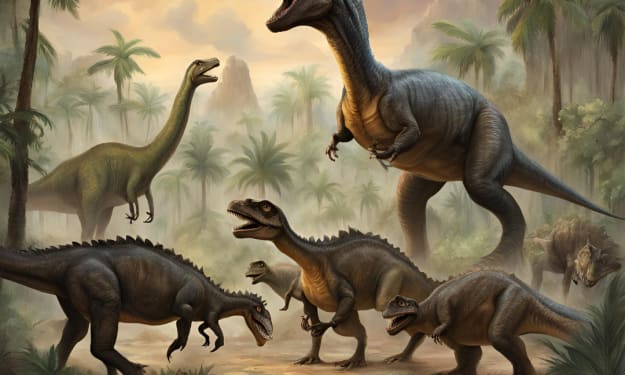The Moon becomes a mine of gold... and other metals
Here you will find interesting facts about the Moon

Space exploration has long focused on reaching very distant destinations, but now there is a race to exploit new frontiers with the extraction of their minerals.
Neil Armstrong's first walk on the Moon in 1969 was part of a strategy to beat the Soviets in the space race, a victory of imagination and innovation, not an attempt to mine precious metals.
No one knew if there was water in that dusty celestial body. What a difference a generation makes...
Mysterious and beautiful, the Moon has been a source of admiration and inspiration for humanity for millennia. It is now the center of a space race to extract minerals to power our future: smartphones, solar panels and possibly even a colony of earthlings.
"We know there is water on the Moon, which changes the game for the Solar System. Water is rocket fuel. It is also fuel for life and agriculture. So exploring the Moon commercially is a first step to making it part of what that humanity sees as our world," says Bob Richards, CEO of Moon Express, one of 25 companies bidding to win the $30 million Google Lunar X prize.
The Californian company is among the top three in the race. The others are Astrobiotic, from Pittsburgh, and Moon Team, from Barcelona.
Google's first prize, of US$20 million, will be awarded to the first private company to put a robot on the Moon, successfully explore the surface by moving at least 500 meters and send high-definition video to Earth.
The second prize, of US$5 million, goes to the second company to complete the same mission, with additional prizes for teams that travel more than 5 kilometers or find water. The deadline is 2015.
But $30 million is a relatively small amount to fund a lunar mission. The competing companies have business models far beyond the Google prize, with the real prize being the potential treasure trove of valuable minerals.
Does the Moon have an owner?
"The most important thing about the Moon is probably what we haven't even discovered," Richards says. "But what we know is that there could be more platinum group metals on the surface of the Moon than in all the reserves on Earth."
But can anyone own the Moon, and what happens if multiple companies and countries manage to get there?
Under the 1967 outer space treaty, no nation can own the Moon, and most people believe that extends to individuals and companies. But would-be lunar miners may have something like property rights. And there is an advantage in arriving first and claiming rights.
"The treaty does not allow appropriation, but open access exploitation is encouraged," notes space lawyer James Dunstan. "You can't own it, although you can use it, but how do we strike a balance?"
China has plans to send a probe to the moon this year and astronauts in 2020. Because China's lunar plans are more ambitious than most, some fear it could gain too much control.
Dunstan does not believe that China will flout international law to dominate space.
"Trade sanctions would be very harsh if a country or corporation appropriated other people's assets."
If Moon Express and others get it right, it is conceivable that in the future the lunar surface will host a colony of mining robots and astronauts who would use it as a base for further exploration of the solar system.
Richards believes humans will discover ways to live permanently on the Moon.
"We are becoming a multi-world species. The first traces of human beings on Mars will arrive in our era, in the next 10 to 20 years," he adds.
"People will be transformed. They will merge with their technologies. And what we call human will be redefined as we seek to reprogram our bodies to live longer and find machines capable of working symbiotically with us to cure diseases."
"So what we consider human today will continue to evolve."
A space without pollution
Moon Express, whose offices are at NASA's Ames Research Center, is financed by businessman Naveen Jain.
Jain says the location is key, because it is in Silicon Valley, which he believes will become home to space pioneers.
"We are those crazy people who think that every idea is crazy, until we make it concrete and then people say 'of course,'" he points out.
So, if we will one day live on the Moon, shouldn't we be worried about contaminating it? Won't robot armies ruin our real estate future?
Margarita Marinova, a planetary scientist at NASA, believes that we will not make the same mistakes in space as we did on Earth and that man cannot afford to explore space without taking advantage of local resources to survive.
"For me it's hard, because I see these planets as beautiful and pristine as the Earth is no longer, so the idea of mining is a little difficult," she admits.
The Moon's potential resources are vast. M. Darby Dyar, a professor of astronomy at Mount Holyoke College, Massachusetts, says ice reserves in the Moon's polar regions probably come from comets that collided with the Moon in the last 4 billion years, and that future miners Lunars could strike it rich with precious metals in ancient lunar rocks.
But even if no company meets the 2015 deadline to win the Google award, Dyar says it has already borne fruit.
"I lived through the excitement of the Apollo era, my father helped design thrusters on the lunar landing modules, and those remembered feelings of patriotism and wonder about the universe led me to lunar science in the first place."
"When I give a girl a meteorite and tell her it's 4 billion years old, her entire frame of reference changes, and that's what science should do. Not everyone wants to be a scientist, but everyone is excited about learning to respect and understand their progress.
"Competitions like this bring science to the public's eyes. Where better than on the Moon, which seems to be so close to us?"
About the Creator
Enjoyed the story? Support the Creator.
Subscribe for free to receive all their stories in your feed. You could also pledge your support or give them a one-off tip, letting them know you appreciate their work.






Comments (1)
Nice nice! Very well written.